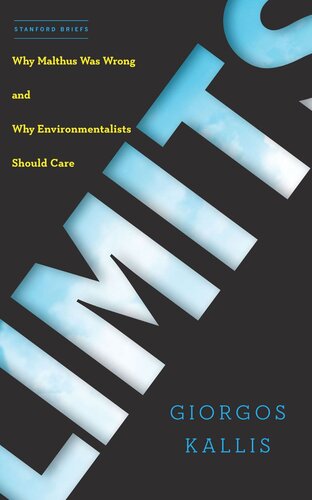

Most ebook files are in PDF format, so you can easily read them using various software such as Foxit Reader or directly on the Google Chrome browser.
Some ebook files are released by publishers in other formats such as .awz, .mobi, .epub, .fb2, etc. You may need to install specific software to read these formats on mobile/PC, such as Calibre.
Please read the tutorial at this link: https://ebookbell.com/faq
We offer FREE conversion to the popular formats you request; however, this may take some time. Therefore, right after payment, please email us, and we will try to provide the service as quickly as possible.
For some exceptional file formats or broken links (if any), please refrain from opening any disputes. Instead, email us first, and we will try to assist within a maximum of 6 hours.
EbookBell Team

4.0
96 reviewsWestern culture is infatuated with the dream of going beyond, even as it is increasingly haunted by the specter of apocalypse: drought, famine, nuclear winter. How did we come to think of the planet and its limits as we do? This book reclaims, redefines, and makes an impassioned plea for limits—a notion central to environmentalism—clearing them from their association with Malthusianism and the ideology and politics that go along with it. Giorgos Kallis rereads reverend-economist Thomas Robert Malthus and his legacy, separating limits and scarcity, two notions that have long been conflated in both environmental and economic thought. Limits are not something out there, a property of nature to be deciphered by scientists, but a choice that confronts us, one that, paradoxically, is part and parcel of the pursuit of freedom. Taking us from ancient Greece to Malthus, from hunter-gatherers to the Romantics, from anarchist feminists to 1970s radical environmentalists, Limits shows us how an institutionalized culture of sharing can make possible the collective self-limitation we so urgently need.